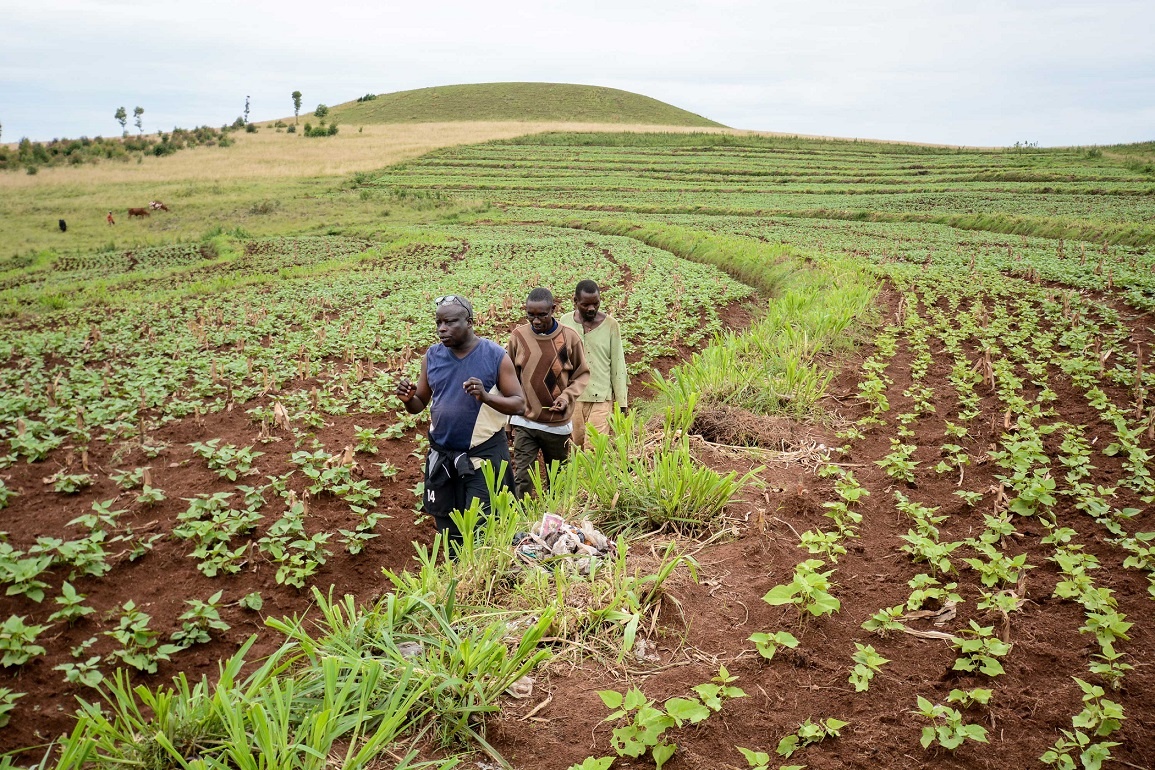
Nigeria Allocates Over $10 Billion to Agriculture over the Past 8 Years: AfDB Report Nigeria has invested heavily in its agricultural sector, with over $10 billion allocated in the last eight years, according to a report by the African Development Bank (AfDB). The report, titled “Nigeria’s Agricultural Transformation: Progress and Prospects,” highlights the government’s commitment to modernizing and diversifying the country’s economy through agricultural development. “Nigeria’s investment in agriculture is a strategic move that has the potential to transform the country’s economy and food security landscape,” said Akinwumi Adesina, President of the AfDB. “Agriculture is the backbone of the Nigerian economy, and this investment will ensure that the sector continues to play a vital role in the country’s development.” The $10 billion allocation was channeled into various initiatives, including research and development, infrastructure, capacity building, and market access for farmers. Some of the key programs include: * The Anchor Borrowers’ Programme, which provided loans to farmers to purchase inputs and expand their production. * The Green Imperative Project, which focused on increasing the production of key crops such as rice, wheat, and maize. * The Agricultural Transformation Agenda, which aimed to boost agricultural productivity and reduce food imports. According to the AfDB report, these initiatives have yielded positive results. Agricultural production has increased, food prices have fallen, and food imports have declined. The country has also become more self-sufficient in key staples. However, the report notes that challenges remain. The agricultural sector is still largely dominated by smallholder farmers with limited access to finance, technology, and market information. The sector also faces challenges related to climate change, pests and diseases, and inadequate infrastructure. The AfDB report recommends that Nigeria continue to invest in agriculture and address the challenges facing the sector. It suggests promoting mechanization, improving access to finance and markets, and investing in research and development. “By addressing these challenges and sustaining the current investment levels, Nigeria has the potential to become a major agricultural powerhouse in Africa,” said Adesina. “Agriculture can play a transformative role in the country’s economy, creating jobs, reducing poverty, and ensuring food security for its growing population.”Food Security and AgricultureFood Security and Agriculture The African Development Bank (AfDB) prioritizes food security in Africa, providing nearly $10 billion in support of agriculture over the past eight years. The bank’s flagship initiative, Technologies for African Agricultural Transformation (TAAT), has distributed climate-smart technologies to 13 million farmers. Success stories include Ethiopia becoming wheat self-sufficient in under four years thanks to heat-tolerant wheat varieties. The bank is also developing Special Agro-Industrial Processing Zones in 11 countries to enhance agro-industrialization and value addition. Energy Africa faces significant energy challenges, with nearly 600 million people without access to electricity. The AfDB’s New Energy Deal, launched in 2016, has increased electricity access from 32% to 57%. The bank is implementing the $20 billion Desert-to-Power initiative to generate 10,000 megawatts of solar electricity in 11 countries, aiming to connect 250 million people. In collaboration with the World Bank, the AfDB plans to connect 300 million Africans to electricity by 2030.
In a recent report, the African Development Bank (AfDB) disclosed that Nigeria has dedicated over $10 billion to the development of its agricultural sector over the past eight years. This significant investment is a testament to the government’s commitment to transforming the country’s agricultural industry. The report highlights that the funds were utilized in various initiatives aimed at enhancing agricultural productivity, promoting value addition, and ensuring food security. Key areas of investment included infrastructure development, access to finance for farmers, and research and development. The AfDB acknowledged the positive impact of these investments, which have led to increased agricultural production, reduced post-harvest losses, and improved market access for farmers. The report further noted that the allocation of these funds aligns with the government’s Economic Recovery and Growth Plan (ERGP), which prioritizes agriculture as a key driver of economic growth. Stakeholders in the industry welcomed the news, emphasizing the critical role of agriculture in addressing food insecurity, creating employment opportunities, and boosting rural economies. They urged the government to sustain its commitment to the sector and to continue exploring innovative financing mechanisms to unlock the full potential of Nigeria’s agricultural potential.
Nigeria Allocates Over $10 Billion to Agriculture over the Past 8 Years: AfDB Report
Related Posts
Kate Hudson Recreated Her Iconic How to Lose a Guy in 10 Days Scene During the World Series, and I Can’t Ignore the Fans’ Reaction to It
Kate Hudson isn’t just an award-winning one actress with famous parents; she is also a huge baseball fan. So it’s no surprise that she attended this year’s World Series to…
Software Catalog Unveils Array of Cutting-Edge Solutions for Enterprise Transformation
Software Catalog Unveils Array of Cutting-Edge Solutions for Enterprise TransformationSoftware Catalog Unveils Array of Cutting-Edge Solutions for Enterprise Transformation Technology is rapidly reshaping the business landscape, making it imperative for…